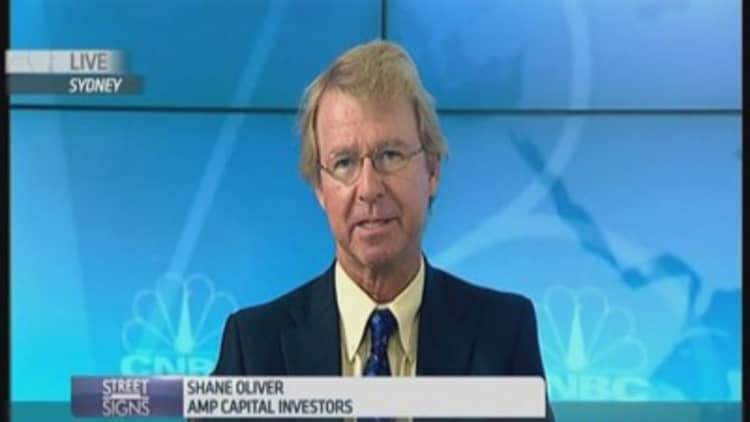
Japan's Prime Minister Shinzo Abe on Friday dissolved the lower house of parliament, setting the stage for snap elections middle of next month.
The move comes on the back of fresh data that showed the world's third-biggest economy slipping into recession in the third quarter, after a controversial sales tax hike that took effect in April battered consumption.
Abe this week postponed a second sales tax hike, initially scheduled for October 2015, by 18 months. The original plan was to raise consumption tax to 10 percent next year, after it was increased to 8 percent from 5 percent this year.
The dissolution effectively renders all 480 members of the lower house jobless. The cabinet later set the election date on December 14, according to NHK TV.
Read MoreOh snap! Why Abe called an election he doesn't need
Abe's decision to call for an election confused many voters, as a poll is not needed for another two years. Plus, the sales tax hike was deeply unpopular and with the main opposition – Democratic Party of Japan (DPJ) – weak, most expect his Liberal Democratic Party (LDP) to win regardless.
A Kyodo survey this week showed 25.3 percent of voters plan to cast ballots for the LDP in proportional representation districts, far more than the 9.4 percent who favor the DPJ.
"In a nutshell, [Abe is calling for elections] because he can. Opposition parties are in total disarray, his poll numbers are holding up pretty well. There's also the consumption tax hike that gives him a plausible excuse to hold one," Jun Okumura, visiting scholar at the Meiji Institute for Global Affairs, told CNBC.
Analysts say Abe is also buying time for his policies, dubbed Abenomics, to kickstart Japan's long-moribund economy.
Read MoreJapan snap election: a sign Abenomics is crumbling?
Abenomics, launched when Abe took office about two years ago, is a three-pronged approach combining monetary and fiscal stimulus, and structural reforms. The outcome so far has been mixed; while the Bank of Japan's dramatic quantitative easing program boosted stock markets and weakened the yen – making exports competitive – it's still far from achieving the inflation rate to central bank's target of 2 percent by next year.
The consumption tax hike, designed to reduce the country's massive public debt, has also seemingly backfired by hampering the economy's fledgling recovery.
"I've always had the view that for Abenomics to work, the focus has to be on the monetary front. You have to end deflation, once you do that, most of the malaise that Japan faces will start to fade," said Shane Oliver, Head of Investment Strategy & Chief Economist at AMP Capital Investors.
Read More
"On the economic reforms you don't want to push too far too fast because that could end up increasing supply side of economy when demand is still weak," he added.
Abe has said he would resign if his coalition – which holds two-thirds of the lower house seats –fails to win a simple majority, an outcome experts dismissed as almost impossible. But Abe could end up weakened if the LDP loses seats.
"The ruling party will likely win a majority [although] I expect they are going to lose some seats. However, this is enough for PM Abe to continue his economic reforms," said Harumi Taguchi, principal economist at IHS Global Insight.
"The sudden call of election makes it difficult for government to pass some bills regarding womenomics and releasing temporary workers. I think government needs to bring up these bills again and accelerate these issues," Taguchi added.


